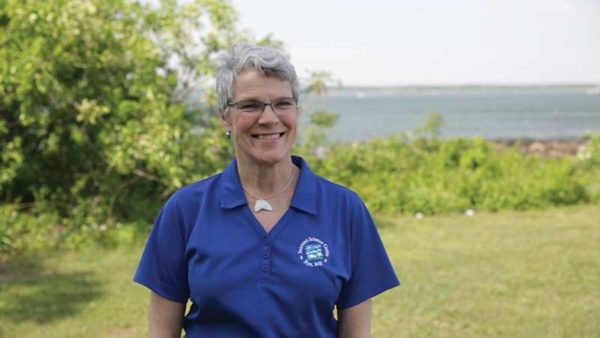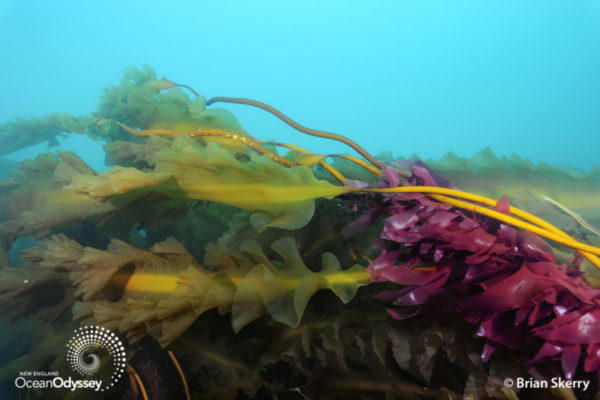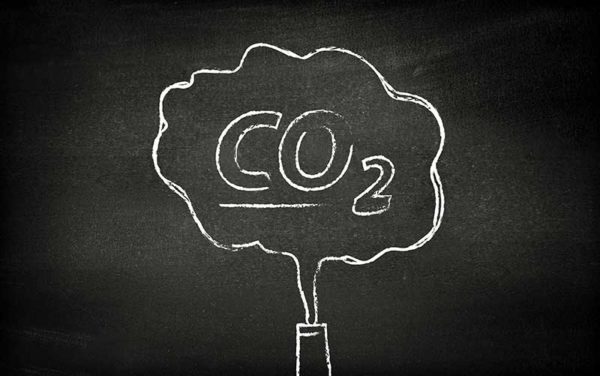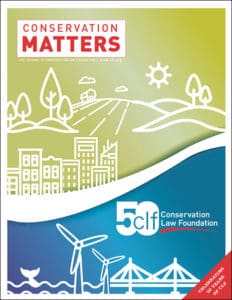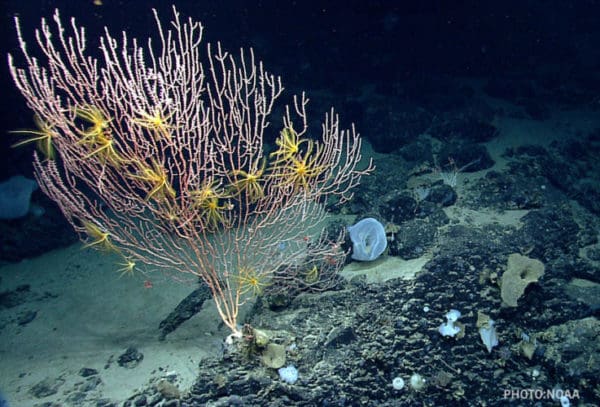Dec 28, 2016
Local Food, Local Farms, and Lawyers Lending a Hand Noah Fralich moved back home to Maine with one ambition: to open a business on his family’s land in New Gloucester. His fledgling Norumbega Cidery was just getting off the ground when he hit a snag – the name of his business was already trademarked by… Continue reading The Legal Food Hub
Dec 28, 2016
A typical day at the Seacoast Science Center in Rye, New Hampshire, finds it packed with ocean enthusiasts: children and adults touch native starfish, learn from interactive exhibits about ocean habitats, and explore tidal pools along the protected New Hampshire coastline. The Center doesn’t just aim to teach visitors about the Gulf of Maine, it… Continue reading Community Voices: Planning for the Future
Dec 28, 2016
Climate Impacts in Motion In September, leaders from around the world gathered in Washington, D.C., for the third annual Our Ocean Conference, hosted by Secretary of State John Kerry. Together, they committed to 136 new initiatives aimed at conserving and protecting fragile ocean areas worldwide. In between commitments from the countries of Sri Lanka and… Continue reading Our Changing Ocean
Dec 08, 2016
Transforming New England’s Energy System New England’s coal-fired power plants were at their peak when CLF opened its doors 50 years ago. The majority of the region’s coal fleet came online in the post-war boom years of the1950s and 1960s and they would go on to dominate our region’s electricity mix for decades. Today, however,… Continue reading Going Low-Carb
Nov 30, 2016
Celebrating 50 Years of CLF Going Low-Carb Transforming New England’s Energy System Coal-Free New England Community Voices: The Clean Energy Landscape Web of Deceit Holding ExxonMobil Accountable for Its Decades of Climate Denial Community Voices: A Message to ExxonMobil A Tale of Two Rivers Boston Harbor 2.0 The New Frontier in the Fight to Save… Continue reading Conservation Matters Fall 2016
Sep 19, 2016
Phelps Turner is the Director of Clean Grid, and works in the Clean Energy & Climate Change and Environmental Justice programs. Before joining CLF, Phelps was an environmental litigation associate at Sugarman, Rogers, Barshak & Cohen in Boston. Phelps holds a Bachelor of Arts from McGill University and a Bachelor of Common Law and a… Continue reading Phelps Turner
Sep 19, 2016
Emily K. Green is the Director of Clean Mobility for CLF Maine, where she focuses on climate change, clean energy, and transportation. Prior to joining CLF, Emily provided comprehensive legal services to Maine’s Department of Environmental Protection as an Assistant Attorney General. Emily earned her J.D. from Cornell Law School and her undergraduate degree from… Continue reading Emily Green
Sep 15, 2016
With Marine National Monument designation in the Atlantic, President Obama seals conservation legacy President Obama is making history today, announcing the designation of the Northeast Canyons and Seamounts Marine National Monument, which will become the only fully protected large marine area in the U.S. Atlantic Ocean. Until today, zero miles of the U.S. Atlantic were… Continue reading A Historic Moment for New England: A Marine National Monument in the Atlantic!
Aug 15, 2016
… What has happened to the Maine Public Utilities Commission? It used to be a respite from politics, relying on a strong staff, expert opinion and transparent analysis to guide Maine’s energy policy. But recent decisions show that our current PUC has little regard for its staff or the opinions of the expert consultants it… Continue reading Maine Voices: PUC, LePage Spurn Consumers While Granting Gas Industry’s Pipe Dream
Jul 28, 2016
… Over the past year, Cashes Ledge and several canyons and seamounts on or near the southern edge of Georges Bank have been proposed as national monuments. We won’t know the outcome for sure until January 2017, but the question remains: Is there a need for a few carefully selected areas in the Gulf of… Continue reading The Potential of the Gulf of Maine


